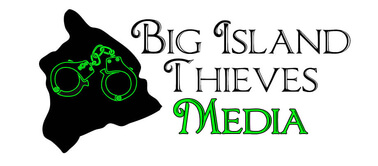HONOLULU – Governor Josh Green, M.D., today signed two landmark pieces of legislation into law: House Bill 1483 (now Act 243) and House Bill 550 (now Act 244). These measures represent a robust, comprehensive response to growing concerns, including the tragic Āliamanu fireworks incident on New Year’s Eve and heightened environmental risks following the Maui wildfires.
“This legislative session saw a fierce and determined push to advance meaningful firework legislation aimed at preventing future tragedies,” stated Governor Green at the signing ceremony. “These bills are commendable and reflect the collaborative efforts of community leaders, first responders, and lawmakers who made possible these long-awaited changes to enhance public safety.”
The new laws introduce substantial penalties for violations and provide law enforcement with modernized tools for enforcement.
Enhanced Penalties and Accountability (Act 243)
House Bill 1483 (Act 243) establishes and clarifies criminal penalties for various illegal fireworks offenses, imposing stricter deterrence measures and holding violators to a higher degree of accountability.
Key provisions of Act 243 include:
- Expanded Offenses: New penalties will apply to actions such as setting off unauthorized fireworks in or near sensitive locations, and distributing, selling, igniting, or possessing illegal fireworks without a license.
- Elevated Felonies: The law amends and expands penalties by elevating felony charges for repeat offenders within a 10-year period. Charges also escalate significantly when the illegal use of fireworks causes substantial bodily harm, serious bodily injury, or death. For instance:
- Illegally setting off aerials within 500 feet of a dwelling (like houses or hotels) is now a crime, punishable by up to one year in jail and/or a fine of up to $2,000.
- If the violator has a prior fireworks conviction within the past 10 years, the current offense becomes a Class C felony.
- If substantial injury results, it becomes a Class B felony.
- If serious injury or death occurs, it is elevated to a Class A felony.
- No Ignorance Defense: Critically, it is no longer a legal defense that a person who illegally set off, bought, sold, stored, or imported fireworks did not know or had no reason to know that injury or death would result. As long as a connection to the fireworks can be proven, everyone along the chain can be held responsible.
- Weight-Based Penalties: To prevent large-scale catastrophes, Act 243 clarifies fireworks weight regulations and increases penalties based on the amount of illegal fireworks possessed.
- Expanded Liability: The measure amends liability provisions to hold parents or guardians, as well as property owners, accountable for fireworks offenses committed by minors or individuals on their property.
- Streamlined Adjudication: To expedite processing and conserve resources for more serious cases, fireworks infractions are now integrated into the existing adjudication system used for traffic and emergency period infractions.
“Setting serious penalties in addition to amending our fireworks infraction processing are substantial advancements in setting deterrents and focusing our attention on those offenders who pose a large risk to our community,” Governor Green remarked. “Too many illegal fireworks acts have been committed and have fallen through the cracks. These firework bills patch up the gaps in our system to help deter illegal activity and hold those accountable for their actions.”
Drone Use Authorized for Enforcement (Act 244)
House Bill 550 (Act 244) authorizes the use of unmanned aerial vehicles (UAVs), commonly known as drones, by the Department of Law Enforcement (DLE) and each county. These drones can be operated and controlled to record directly over public property, specifically to establish probable cause for an arrest under the Fireworks Control Law.
This measure directly addresses a key challenge in fireworks enforcement, as crimes often occur in areas difficult for law enforcement to access and are fleeting in nature. The use of photographs and video recordings from drones will significantly assist officers in surveilling and upholding fireworks laws when acts are committed on public properties.
Senator Brandon Elefante, Chair of the Senate Public Safety and Military Affairs Committee, noted that these new laws “give us the tools to crack down on repeat offenders, protect our neighborhoods, and hold people accountable.” Representative Scot Z. Matayoshi, chair of the House Consumer Protection and Commerce Committee, added that Act 244 “authorizes the use of drones for enforcement in public areas, allowing for timely and effective response, while maintaining appropriate safeguards around privacy and surveillance on private property.”
DLE Director Mike Lambert highlighted the strategic advantage: “The authorization of Unmanned Aerial Vehicles also referred to as “drones” to collect evidence for prosecution is a huge advantage for law enforcement agencies across the state. The law enforcement community appreciates the Governor and Legislators for giving us the laws and tools to truly make a difference moving forward.”
These bills, along with others, were championed by community leaders, first responders, and lawmakers who sought meaningful reform after the devastating Āliamanu incident.
The complete list of bills signed today also includes:
- SB 601 (ACT 245) RELATING TO LAW ENFORCEMENT
- SB 222 (ACT 246) RELATING TO FIREWORKS
- HB 806 (ACT 247) RELATING TO FIREWORKS



